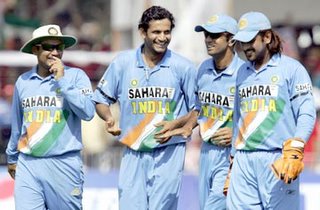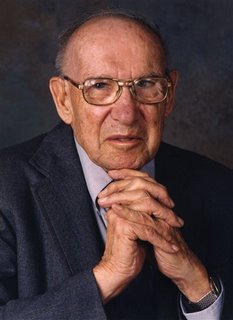Big Don'ts: 15 Ways to Torpedo Your Application The last date for submitting B school applications for various B schools is close.
Over the past few weeks, a few of my friends (prospective applicants to B schools) had emailed me their B school essays and asked me to review them.I provided my inputs and left it to them to take whatever they feel would be helpful.
I know how tough writing an essay is. The applicant might write an essay in a few minutes,hrs,days and might feel that he has covered everything that he wanted to say.And yet,after a few days, when he reviews the essays, he feels that there is a lot of scope for improvement.Review of essays are always helpful.
'Content' and the 'Intent' are two important factors that one should keep in mind while writing an essay.
Here are few DON'Ts that I once read at the Business Week forum.I had posted this stuff earlier on my blog too...but since a lot of folks are are in the Application Stage, posting these tips again.
DO NOT
1)Write about the high school glory days.:
Unless you're right out of college, or you've got a great story to tell, resist using your high-school experiences for the essays. What does it say about your maturity if all you can talk about is being editor of the yearbook or captain of the
varsity team?
2)Submit essays that don't answer the questions.
An essay that does no more than restate your resume frustrates the admissions committees. After reading 5,000 applications, they get irritated to see another long-winded evasive one. Don't lose focus. Make sure your stories answer the question.
3)Fill essays with industry jargon and detail.
Many essays are burdened by business-speak and unnecessary detail. This clutters your story. Construct your essays with only enough detail about your job to frame your story and make your point. After that, put the emphasis on yourself—what you've accomplished and why you were successful.
4)Write about a failure that's too personal or inconsequential.
Refrain from using breakups, divorces, and other romantic calamities as examples of failures. What may work on a confessional talk show is too personal for a b-school essay. Also, don't relate a "failure" like getting one C in college (out of an otherwise straight-A average). It calls your perspective into question. Talk about a failure that matured your judgment or changed your outlook.
5)Reveal half-baked reasons for wanting the MBA.
Admissions officers favor applicants who have well-defined goals. Because the school's reputation is tied to the performance of its graduates, those who know what they want are a safer investment. If b-school is just a pit stop on the great journey of life, admissions committees would prefer you make it elsewhere. However unsure you are about your future, it's critical that you demonstrate that you have a plan.
6)Exceed the recommended word limits.
Poundage is not the measure of value here. Exceeding the recommended word limit suggests you don't know how to follow directions, operate within constraints, organize your thoughts, or all of the above. Get to the crux of your story and make your points. You'll find the word limits adequate.
7)Submit an application full of typos and grammatical errors.
How you present yourself on the application is as important as what you present. Although typos don't necessarily knock you out of the running, they suggest a sloppy attitude. Poor grammar is also a problem. It distracts from the clean lines of your story and advertises poor writing skills. Present your application professionally—neatly typed and proofed for typos and grammar. And forget gimmicks like a videotape. This isn't America's Funniest Home Videos.
8)Send one school an essay intended for another—or forget to change the school name when using the same essay for several applications.
Double check before you send anything out. Admissions committees are (understandably) insulted when they see another school's name or forms.
9)Make whiny excuses for everything.
Admissions committees have heard it all—illness, marital difficulties, learning disabilities, test anxiety, bad grades, pink slips, putting oneself through school—anything and everything that has ever happened to anybody. Admissions officers have lived through these things, too. No one expects you to sail through life unscathed. What they do expect is that you own up to your shortcomings. Avoid trite, predictable explanations. If your undergraduate experience was one long party, be honest. Discuss who you were then, and who you've become today. Write confidently about your weaknesses and mistakes. Whatever the problem, it's important you show you can recover and move on.
10)Make the wrong choice of recommenders.
A top-notch application can be doomed by second-rate recommendations. This can happen because you misjudged the recommendors' estimation of you or you failed to give them direction and focus. As we've said, recommendations from political figures, your uncle's CEO golfing buddy, and others with lifestyles of the rich and famous don't impress (and sometimes annoy) admissions folk—unless such recommenders really know you or built the school's library.
11)Let the recommender miss the deadline.
Make sure you give the person writing your recommendation plenty of lead time to write and send in their recommendation. Even with advance notice, a well-meaning but forgetful person can drop the ball. It's your job to remind them of the deadlines. Do what you have to do to make sure they get there on time.
12)Be impersonal in the personal statement.
Each school has its own version of the "Use this space to tell us anything else about yourself" personal statement question. Yet many applicants avoid the word "personal" like the plague. Instead of talking about how putting themselves through school lowered their GPA, they talk about the rising cost of tuition in America. The personal statement is your chance to make yourself different from the other applicants, further show a personal side, or explain a problem. Take a chance and be genuine; admissions officers prefer sincerity to a song and dance.
13)Make too many generalizations.
Many applicants approach the essays as though they were writing a newspaper editorial. They make policy statements and deliver platitudes about life without giving any supporting examples from their own experiences. Granted, these may be the kind of hot-air essays that the application appears to ask for, and probably deserves. But admissions officers dislike essays that don't say anything. An essay full of generalizations is a giveaway that you don't have anything to say, don't know what to say, or just don't know how to say whatever it is you want to say.
14)Neglect to communicate that you've researched the program and that you belong there.
B-schools take enormous pride in their programs. The rankings make them even more conscious of their academic turf and differences. While all promise an MBA, they don't all deliver it the same way. The schools have unique offerings and specialties. Applicants need to convince the committee that the school's programs meet their needs. It's not good enough to declare prestige as the primary reason for selecting a school (even though this is the basis for many applicants' choice).
15)Fail to be courteous to employees in the admissions office.
No doubt, many admissions offices operate with the efficiency of sludge. But no matter what the problem, you need to keep your frustration in check. If you become a pest or complainer, this may become part of your applicant profile. An offended office worker may share his or her ill feelings about you with the boss—that admissions officer you've been trying so hard to impress.








